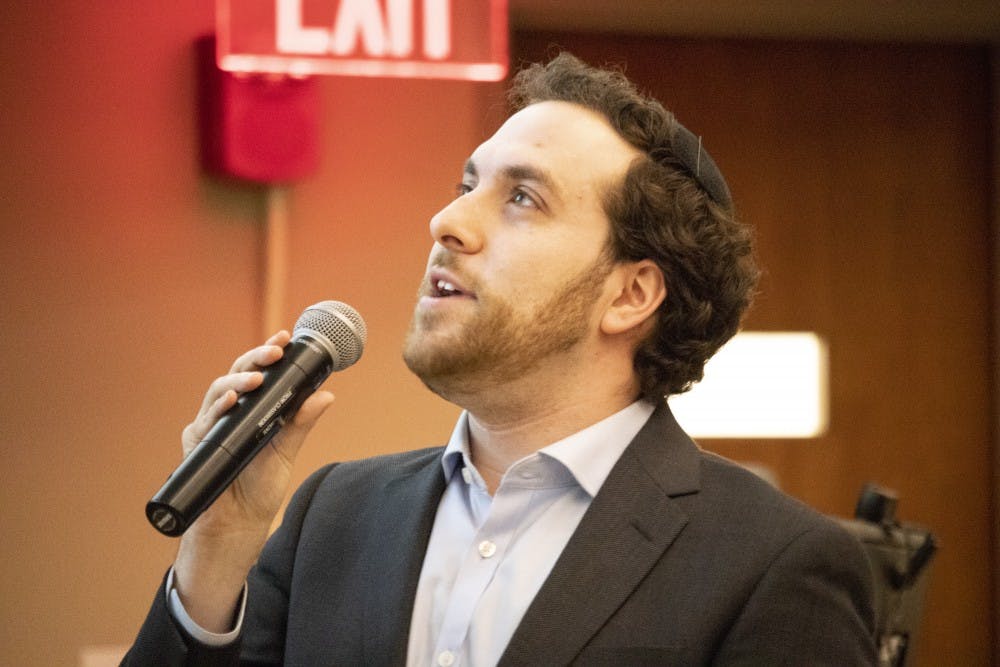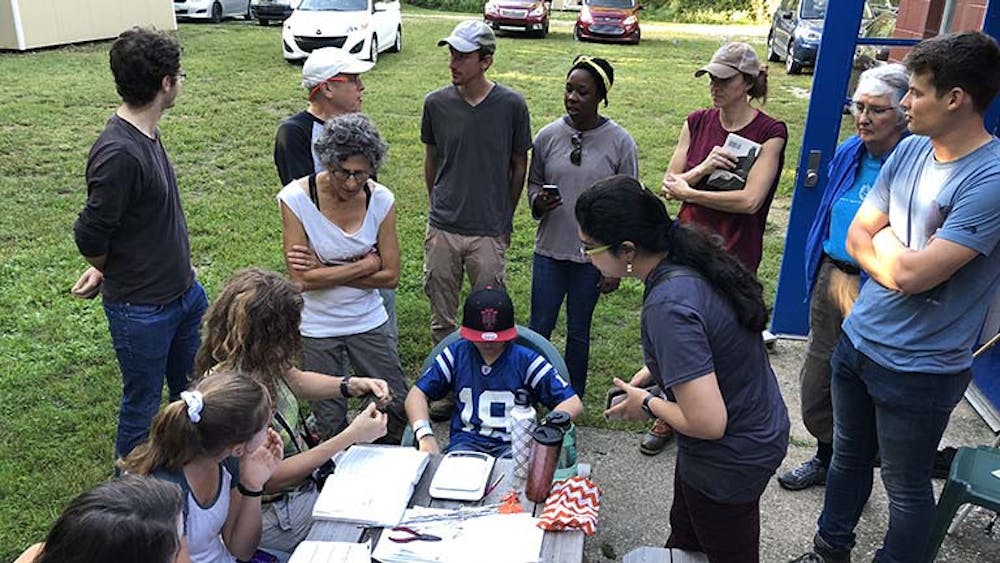Journalist Yair Rosenberg spoke on Monday at IU in Swain Hall West about how modern anti-Semitism affects the Jewish community, especially on social media, and how people can respond to it.
His speech centered on his experiences as a Tablet Magazine senior writer responding to anti-Semitic messages with humor rather than outrage and how he differentiates internet trolls from those seeking education. He frequently writes about politics, religion and culture, but his work often focuses on anti-Semitism.
IU Hillel and the Indiana Memorial Union Board, in partnership with other campus and city groups, organized the event to give attendees tools to respond to hateful comments online.
“We asked him to make this relatable to students,” Hillel engagement associate Mason Greenberg said. “How can this be something a college student would be interested in and digest?”
Almost 200 people attended the event, Hillel director Rabbi Sue Silberberg said.
Rosenberg said when people see hateful comments online, they often blame the social media platform or respond with anger. He urged the audience to instead respond in a way that turns the harassment into empowerment.
“We have enough outrage and anger and depressing content on our timelines,” he said. “There are ways to do this that are not in that fashion.”
He showed screenshots of ways he has responded to hateful comments that spread awareness of anti-Semitism while also telling the trolls their messages don’t have power.
“People thought it was funny,” he said. “But at the same time they learned a little bit about how being an American Jew online means that somebody is going to say you’re responsible for things going on in the Middle East.”
Rosenberg also made the distinction between times he chooses to respond in a humorous way and when to engage in civil, respectful conversation.
“When someone shares an infographic about how the Jewish media controls your mind, they’re coming from a place of malice, and it’s not worth engaging them,” he said. “But I do sometimes get direct messages or emails from people who are reaching out trying to learn something.”
Silberberg said she enjoyed Rosenberg’s explanation of the importance of communication and education when people do want to learn.
“I think the majority of people are not out there with malicious intent,” she said. “And it’s good to be reminded of that. But it’s also good to know what to do when you face it.”
Following his presentation, Rosenberg answered questions from students regarding his work and methods of responding to hateful commentary.
Rosenberg explained the ways social media can lend itself to difficult conversations both positively and negatively. He said complex topics that cannot be fully explained in 280 characters are better to discuss on other platforms that allow more space. And sometimes social media is not the place for conversation at all.
He said students will be important to find ways to use future social media platforms to continue the conversation on hateful speech.
“I hope you’ll walk away thinking of how we can come together to make our online spaces better and healthier,” he said.






